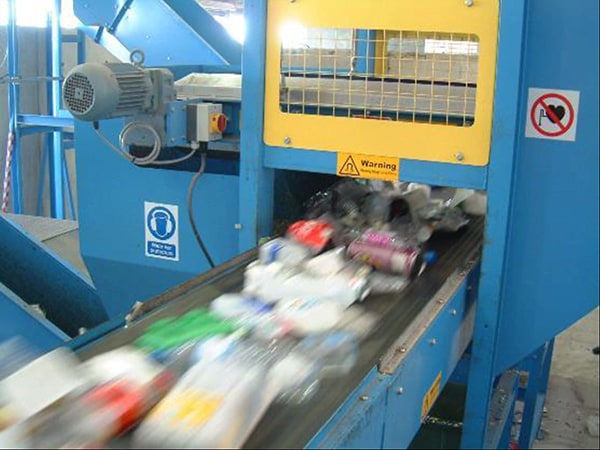Colgate is confident its recently launched Smile for Good recyclable toothpaste tube can be differentiated from traditional non-recyclable tubes at materials recycling facilities (MRFs) in the UK.
But, the company said an industry transition was key if more tubes are to be successfully recycled, and added that it will be sharing its technology with competitors to create a ‘standard’ for tubes.
The toothpaste – launched on 13 January – comes in a tube made from High Density Polyethylene (HDPE), the widely recycled plastic used to make milk jugs and other plastic bottles.
A Colgate spokesperson told letsrecycle.com the tube had undergone testing at a laboratory and at real MRFs in the US and Canada to see how the packaging might be sorted and recycled in practice.
They said: “We have designed these tubes with recyclability information on-pack, and while we can’t predict what each MRF will do, over time awareness and acceptance will grow.
“We are driving industry transition because indeed, MRF operations don’t allow workers to examine every tube. We’re excited to be leading the change.”
There have been concerns in the past about similar schemes, as sometimes small products such as toothpaste tubes can be missed by machinery at MRFs and separated with waste.
Circular economy
According to estimates of Colgate’s own, toothpaste accounts for an estimated 20 billion tubes sold annually around the world.
Colgate says toothpaste tubes are usually made from sheets of plastic laminate sandwiched around a thin layer of aluminium. It claims this mix of materials is impossible to recycle through conventional methods.
“While we can’t predict what each MRF will do, over time awareness and acceptance will grow”
Noel Wallace, chief executive officer and president of Colgate-Palmolive, said: “Colgate wants to make tubes a part of the circular economy by keeping this plastic productive and eliminating waste.
“If we can standardise recyclable tubes among all companies, we all win. We want all toothpaste tubes – and eventually all kinds of tubes – to meet the same third-party recycling standards that we’ve achieved.
“We can align on these common standards for tubes and still compete with what’s inside them.”
Tube
The Smile for Good tube combines different grades and thicknesses of HDPE laminate to meet recycling standards while protecting the product, holding up to the demands of high-speed production and remaining squeezable.
It has received recognition from The Association of Plastic Recyclers and RecyClass (an initiative that works on improving recyclability of packaging), who set recyclability standards for North America and Europe respectively.
The Colgate spokesperson said: “Industry transition, awareness, and acceptance remain key to successful inclusion of any tube.
“We’re also actively sharing our technology with competitors and tube manufactures. As more and more tubes meet the same standard, recycling momentum will accelerate.”
Packaging
Colgate aims to achieve 100% recyclable packaging by 2025.
Though the Smile for Good tube is yet to undergo trials at MRFs in the UK, after consulting with several recycling bodies Colgate is confident it is recyclable.

Colgate says it hopes to align common standards for tubes to make them easier to be picked up at MRFs
The spokesperson said: “We’ve talked with OPRL, WRAP, and RECOUP and plan additional collaboration. In addition, plastic experts More Recycling have formed an EU working group on tubes that we are part of.”
Vegan
The Smile for Good toothpaste contained within the tube has been certified by the Vegan Society, the FSC and EcoCert.
It is available in two varieties: Protection and Whitening, which uses baking soda for its whitening properties.
Colgate says the new paste uses a minimal number of ingredients, listing each ingredient and explaining its purpose on the front of the pack.
The post Colgate says sector ‘transition’ key for tube recycling appeared first on letsrecycle.com.
Source: letsrecycle.com Plastic



